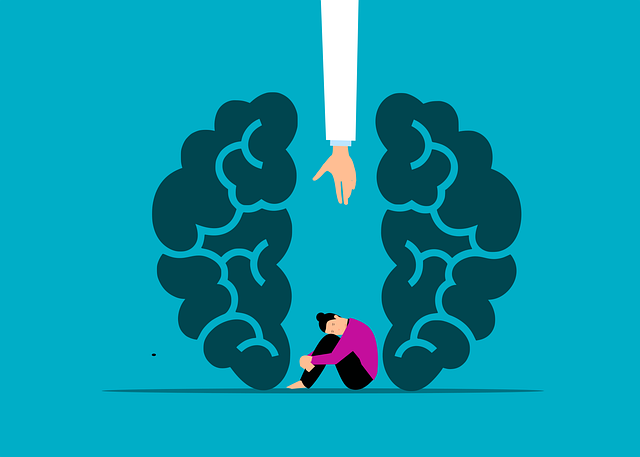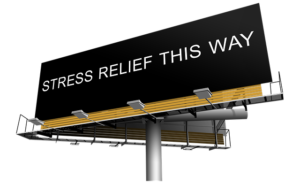As the Delta variant of COVID-19 continues to spread, many people are experiencing heightened anxiety and stress. The symptoms of the Delta variant can be similar to those of anxiety, which can further exacerbate the situation. In this article, I will explore the link between anxiety and Delta variant symptoms, and provide coping strategies and support options for those struggling with anxiety during these challenging times.
Introduction: The Link Between Anxiety and the Delta Variant Symptoms
The Delta variant is a highly transmissible strain of COVID-19 that has caused a surge in cases around the world. Symptoms of the Delta variant can include fever, cough, sore throat, and shortness of breath. These symptoms can also be present in anxiety, which can make it difficult to differentiate between the two. Additionally, the stress and uncertainty surrounding the pandemic can exacerbate anxiety symptoms, creating a vicious cycle.
Understanding Anxiety: What is Anxiety and How Does it Affect Us?
Anxiety is a natural response to stress, but it can become problematic when it interferes with daily life. It is characterized by feelings of worry, nervousness, and fear. Anxiety can manifest physically, with symptoms such as increased heart rate, sweating, and trembling. It can also cause difficulty sleeping, irritability, and difficulty concentrating.
There are several types of anxiety disorders, including generalized anxiety disorder, panic disorder, and social anxiety disorder. Each type has its own set of symptoms and treatment options.
Symptoms of the Delta Variant: An Overview
The symptoms of the Delta variant are similar to those of other strains of COVID-19. They can include fever, cough, sore throat, and shortness of breath. Some people may also experience body aches, headache, and loss of taste or smell. These symptoms can range from mild to severe and can appear anywhere from two to fourteen days after exposure to the virus.
It is important to note that not everyone who contracts COVID-19 will experience symptoms. Additionally, some people may have mild or no symptoms, while others may experience severe symptoms that require hospitalization.
The Connection Between Anxiety and the Delta Variant Symptoms
The symptoms of the Delta variant can be similar to those of anxiety, which can create confusion and uncertainty. This can further exacerbate anxiety symptoms, creating a vicious cycle. Additionally, the stress and uncertainty surrounding the pandemic can contribute to anxiety symptoms, making it difficult to differentiate between anxiety and COVID-19 symptoms.
It is important to seek medical advice if you are experiencing symptoms of the Delta variant. A healthcare provider can help determine if your symptoms are related to COVID-19 or anxiety.
Coping Strategies for Anxiety During the Delta Variant
There are several coping strategies that can help manage anxiety during the Delta variant. These include:
- Practice self-care: Engage in activities that promote relaxation and well-being, such as yoga, meditation, or deep breathing exercises.
- Stay informed: Stay up-to-date on the latest developments regarding COVID-19, but limit exposure to news and social media.
- Maintain a routine: Stick to a daily routine as much as possible, including regular sleep, exercise, and meals.
- Stay connected: Stay connected with loved ones and seek support from friends, family, or a mental health professional.
- Seek professional help: If anxiety symptoms persist or interfere with daily life, seek professional help from a mental health provider.
Seeking Support: Therapy Options for Anxiety Related to the Delta Variant
Therapy can be an effective treatment option for anxiety related to the Delta variant. There are several types of therapy that can be beneficial, including:
- Cognitive-behavioral therapy (CBT): This type of therapy focuses on changing negative thought patterns and behaviors that contribute to anxiety.
- Exposure therapy: This type of therapy involves gradually exposing the individual to anxiety-provoking situations in a controlled environment to help them overcome their fears.
- Mindfulness-based therapy: This type of therapy focuses on being present in the moment and accepting thoughts and feelings without judgment.
- Group therapy: This type of therapy involves participating in a therapy group with other individuals who are experiencing similar challenges.
Medications for Anxiety: Exploring Beta Blockers, Gabapentin, Propranolol, and Hydroxyzine
In some cases, medication may be necessary to manage anxiety related to the Delta variant. There are several medications that can be effective, including:
- Beta blockers: These medications can help reduce physical symptoms of anxiety, such as increased heart rate and sweating.
- Gabapentin: This medication is typically used to treat seizures, but can also be effective in treating anxiety.
- Propranolol: This medication is often used to treat high blood pressure and can also be effective in treating anxiety.
- Hydroxyzine: This medication is an antihistamine that can be used to treat anxiety and insomnia.
It is important to discuss medication options with a healthcare provider to determine the best course of treatment.
Anxiety Attack vs. Panic Attack: Understanding the Difference
Anxiety attacks and panic attacks can be similar in symptoms, but there are some differences. Anxiety attacks are typically characterized by a gradual onset of symptoms, while panic attacks come on suddenly and can be more intense. Additionally, anxiety attacks are often triggered by specific situations or events, while panic attacks can occur without an obvious trigger.
It is important to seek medical attention if you are experiencing symptoms of an anxiety or panic attack.
Assessing Anxiety: An Overview of Anxiety Tests
There are several tests that can be used to assess anxiety, including:
- Generalized Anxiety Disorder 7 (GAD-7): This test measures symptoms of generalized anxiety disorder.
- Panic Disorder Severity Scale (PDSS): This test measures symptoms of panic disorder.
- Social Phobia Inventory (SPIN): This test measures symptoms of social anxiety disorder.
These tests can help healthcare providers determine the best course of treatment for individuals experiencing anxiety related to the Delta variant.
Conclusion: Taking Care of Your Mental Health During the Delta Variant
The Delta variant has created a great deal of uncertainty and stress for many people. It is important to prioritize mental health and seek support if necessary. Coping strategies, therapy, and medication can all be effective in managing anxiety related to the Delta variant. Remember to stay informed, stay connected, and take care of yourself during these challenging times.
If you are struggling with anxiety related to the Delta variant, please seek support from a mental health provider.



